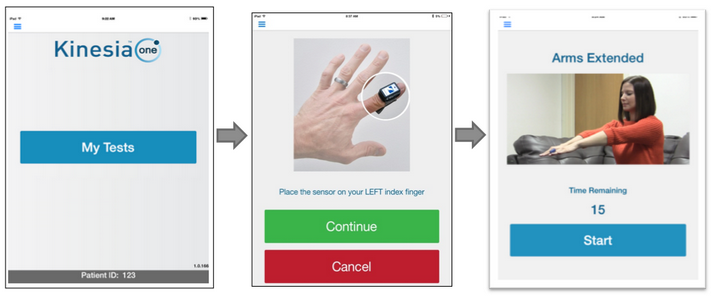
Great Lakes NeuroTech has completed and published a clinical study validating that remote monitoring with wearable, objective sensors can lead to an increased referral rate for advanced therapies in Parkinson’s disease.
Published in The Journal of Parkinson’s Disease, the protocol followed 40 patients with Parkinson’s disease randomized into two groups for one year. The control group received standard care for assessing Parkinson’s disease, while the other used wearable, objective sensors (Kinesia™) in the home environment.
Kinesia ONE uses an app and wireless sensors to objectively measures movement disorders such as Parkinson’s Disease. The sensor and app measures tremor, bradykinesia, and dyskinesia Additionally, during specific tasks, the system can be integrated into clinical trials or patient care.
For the Kinesia group, clinicians remotely viewed reports detailing motor symptoms and dyskinesia throughout the day via a web portal to aid in disease management decisions. The results demonstrated a clinician was 5 times more likely to recommend a patient for an advanced therapy such as deep brain stimulation (DBS) or an implantable medication pump when given access to objective, remote monitoring reports. The referral rate for the Kinesia group was 63.6% compared to 11.8% in the standard care group.
The study demonstrated that, when measured remotely, specific variables such as symptom severity and fluctuations of motor symptoms could provide key information to clinicians about when it was time to consider an advanced therapy.
“An important reason we developed and validated our Kinesia technology was to give clinicians a window into what happens when individuals with Parkinson’s disease leave the clinic,” says Dustin Heldman, Biomedical Research Manager in a statement. “The results of this study are advancing our technology beyond the initial building blocks of algorithm validation and usability. We are now seeing the technology deployed and validated in targeted applications to help guide clinical decision making and improve patient care. Getting the right therapy to patients at the right time is one of those targeted apps , in which Kinesia can have a significant positive impact.”
